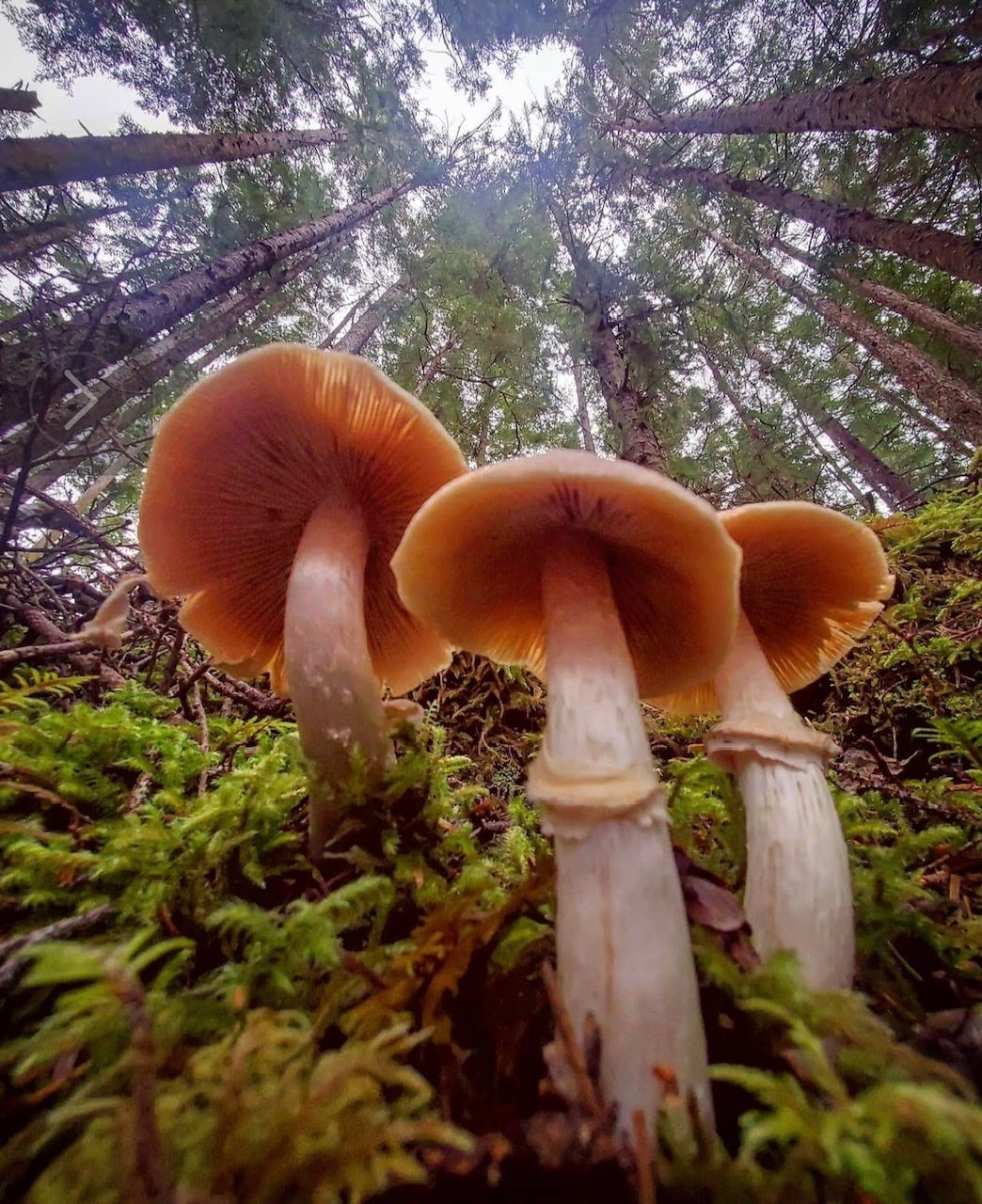
It's the first day of fourth grade at my daughter’s new school. Cherub children shuffle beside tall, fit, and good-looking parents in Patagonia and Title Nine outdoor gear.
Even though this was the “crown jewel” of all elementary schools, I’d dragged my feet on enrolling my kids here. It took me seven years to come around to it. Why did I spend 7 years driving my kids an hour through snow storms so my kids could attend a charter school across town? This school was close to my house! The teachers were excellent! It gets so much light!
Upon entering the class of thirty-three fourth-graders (!!!), I can hear a pin drop. Every student is at their desk, not reading to each other on bean bags like at the old school.
“Where do I put these?” I hold out two bags of school supplies.
“In her desk,” the teacher replies.
At the old school, all school supplies were shared. In Tlingit culture, possessions are not owned but “borrowed” until the person passes, when they are returned to the clan. Land is also not owned by individuals but by the clan as a collective.
Here in Mainstream American School, each kid has their own desk with their own materials. Flags in the ground. Mine. Yours. His. Hers.
I look at the whiteboard, and my head spins: fourteen transitions in the daily schedule. At her old school, instruction was project-based.
My autistic daughter especially struggles with transitions. When she finds something she likes, she can dig in for hours. But how when she has to switch gears every 30 minutes? “There’s just not enough time,” the teachers will say.
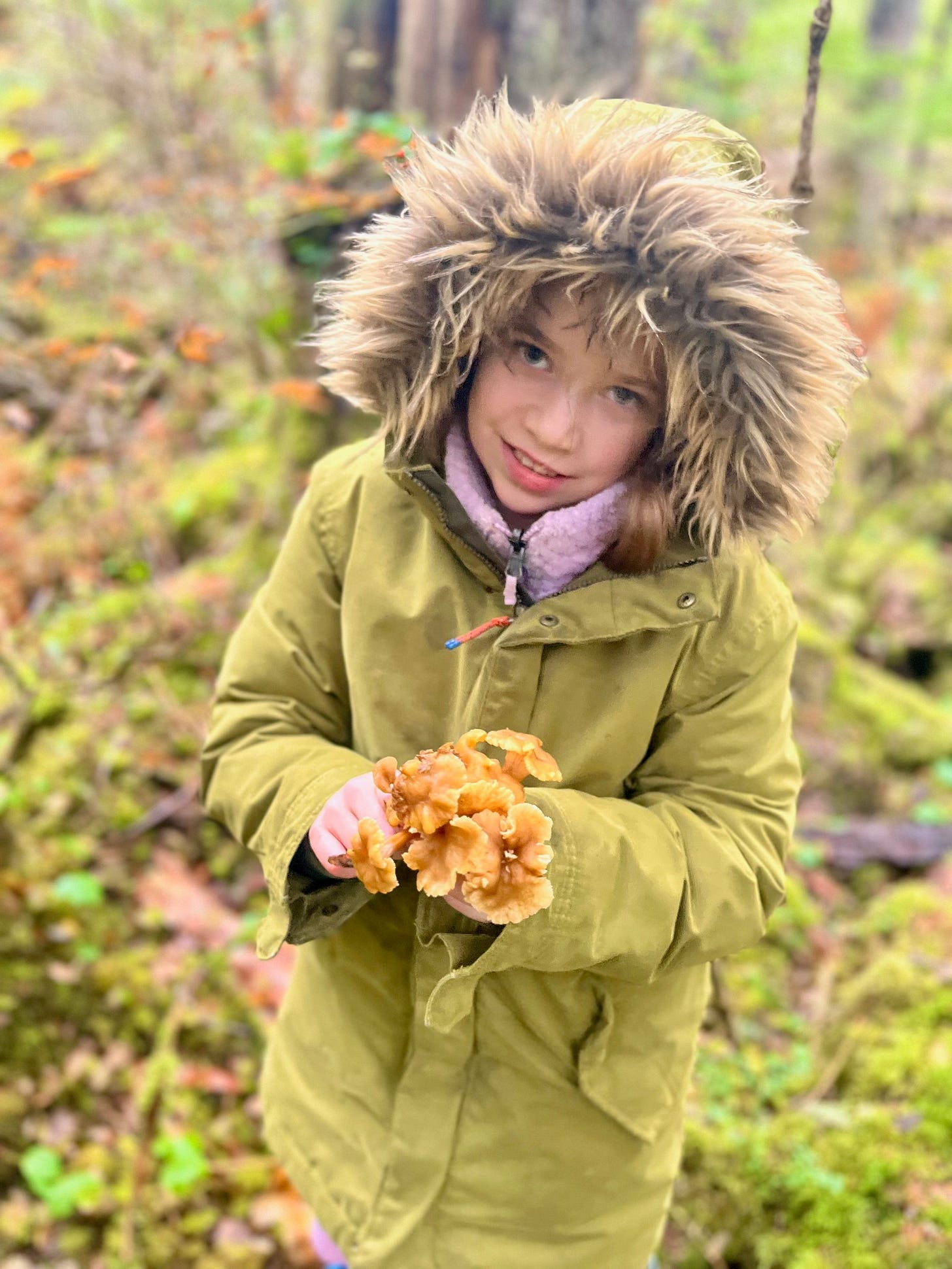
This time of the year, we go into the woods to harvest Chanterelles. I show my daughter how to distinguish them from the poisonous Jack-O’-Lanterns. They are more yellow and their ridges more robust.
I tell her about the vast networks of underground mycelium that connect all living things. How the mushroom is the fruiting body of that interconnectedness. The mycelium feed the mushrooms we eat and the trees that house and heat our home. Everything is connected.
I think about the moms who messaged me after my last few newsletters, how exhausted they are trying to Do It All ™ on their own. They struggle because we are doing individually what we should be doing collectively.
“When humans lived in big, sprawling, multigenerational groups,”
writes, “we shared resources, food, childcare duties, tools, and shelter. But when everyone’s siloed off, a handful of people in their own private house, now suddenly everyone needs to buy their own car, and daycare tuition, and lawnmower, and dishwasher, and and and and and. This setup also ensures that the parents have no choice but to work, and work hard; if there were, say, four adults and thus four incomes coming into a family instead of just two, those four adults would each have the luxury of working far less.”🍄✨
A class of all 4th graders, separated by age, like with like. All subjects segregated like parts in an assembly line.
The healthiest forests are the most diverse. And yet our school and community “forests” have become homogenous, our trees too far apart.
A friend who is also a stressed-out, overworked mom recently posted this on Facebook:
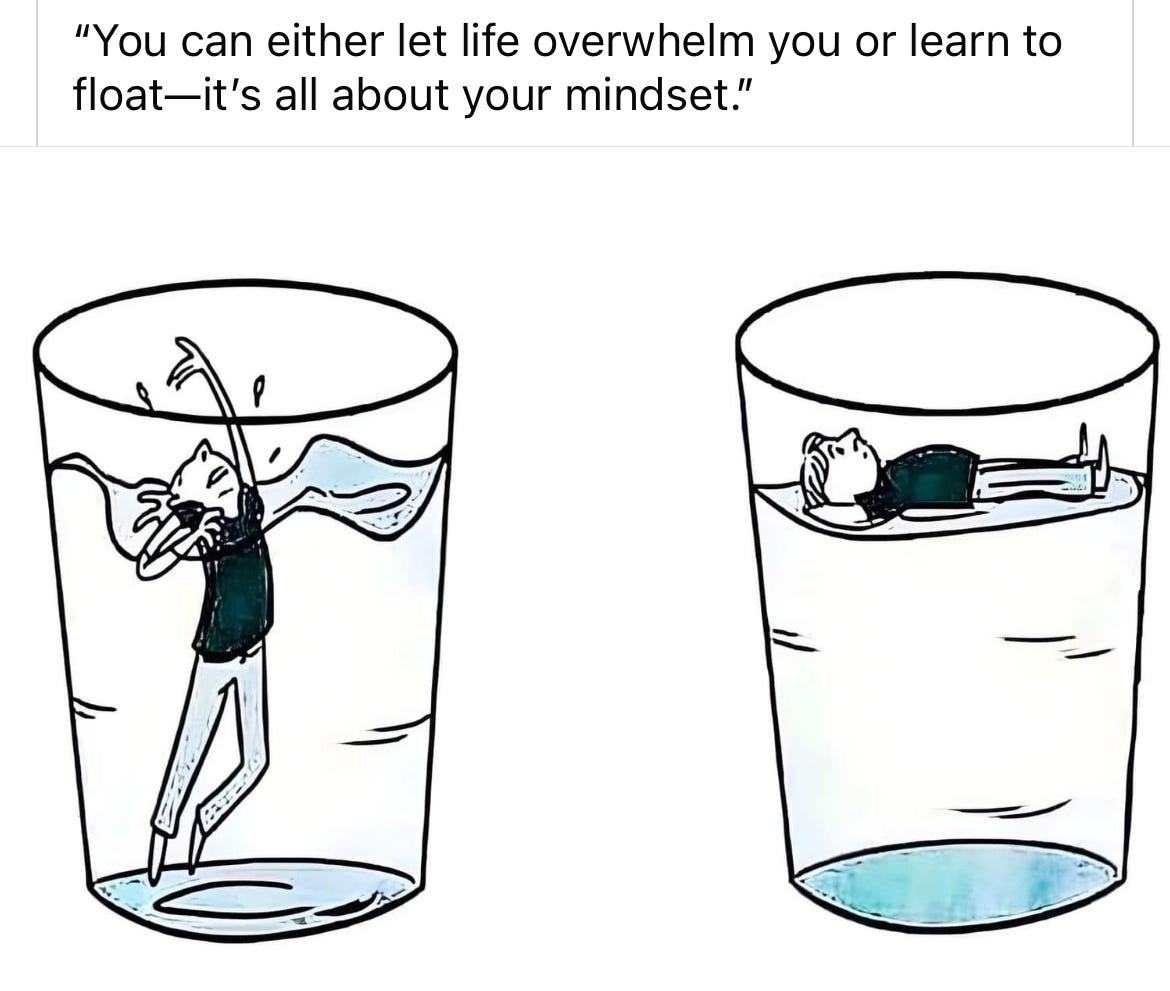
“Today I kept calm when my kids freaked out,” she wrote alongside the post. “I’m trying to float.”
It made me sad for my friend but mostly frustrated. These “positive mindset” posts exemplify how our culture puts the onus on the individual. We can only do so much “floating” when we’re getting pulled under by forces beyond our control. Sometimes, we need life jackets.
Republicans believe we should pull ourselves up by our bootstraps. Yes, we need to take responsibility for our actions while acknowledging that we are part of systems that are often beyond our control.
We do not choose our sick or disabled bodies, challenging circumstances, or the trauma we inherit before we take our first breath. We disregard how our ancestral wounds run through our lineage, haunting us. Our medicine treats our bodies as siloed parts.
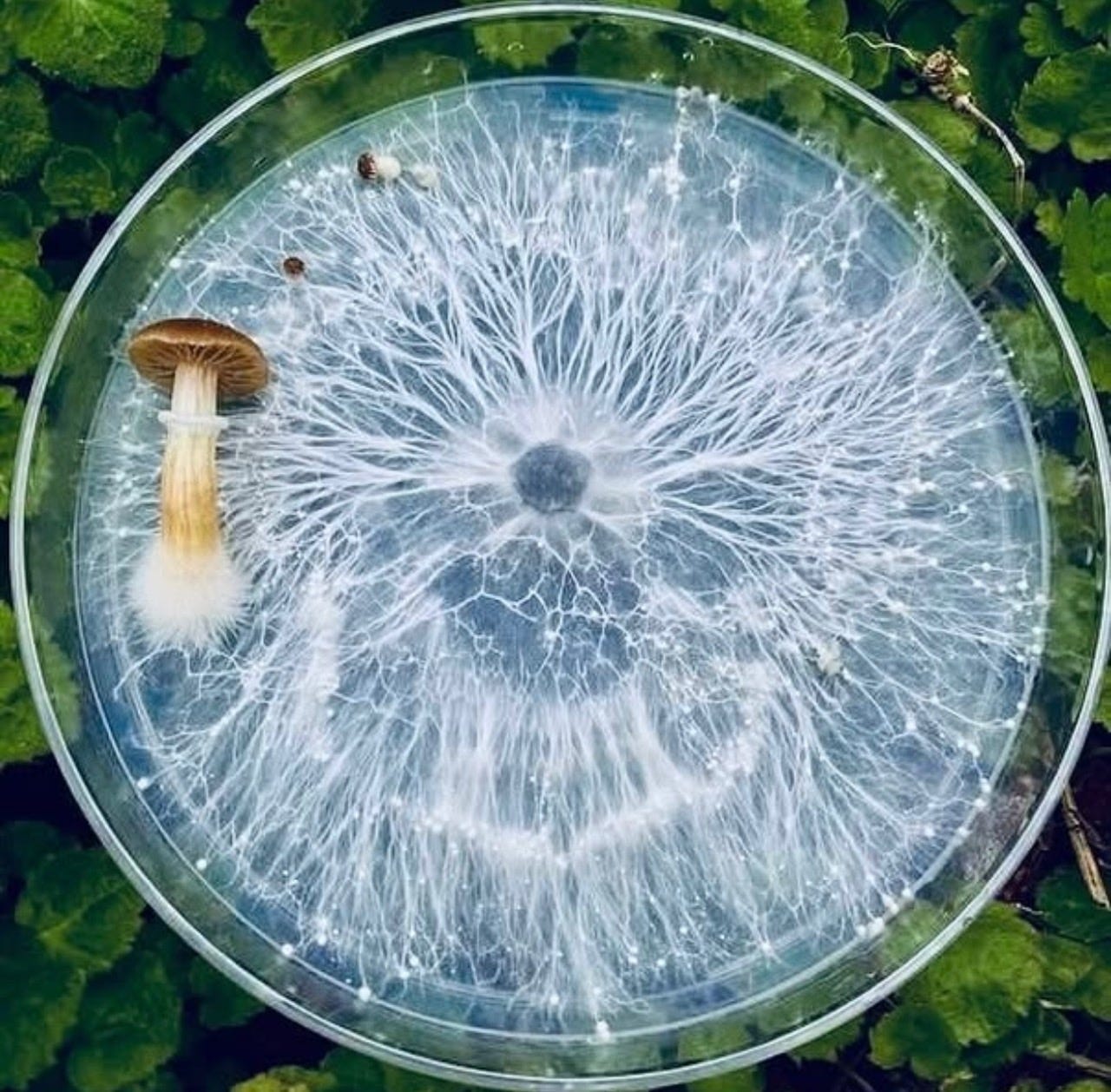
In my early twenties, I moved to Costa Rica. I loved how people prioritized relationship with self, others, and nature. Living this way felt good because it felt like living in my true nature.
In the U.S., we have become inherently unnatural. As long as we continue to fight our nature, we will be at war with ourselves.
Democrats are for more socialist-style systems, but they still uphold oppressive systems. They buy into the nuclear family model. They prioritize productivity over relationship.
How does a child learn about the strength of diversity and the interconnectedness of all living things when the structure of our educational institutions teaches them otherwise?
We can restructure our schools and healthcare; we have already begun to do so. We can acknowledge our painful histories, not just brush under the rug that which doesn’t serve the machine. We can teach our children—and ourselves—to be inclusive and not just in a performative way.
Tell me, what are the mycelium-like networks in your communities? What kind of fruit are they bearing?
Now I’m off to cook up some mushrooms. Sending you some across the ether.
xo,
Summer
P.S. If you value independent writing and can do so, please consider signing up for a paid subscription. Many thanks to the generosity of these new paid subscribers!
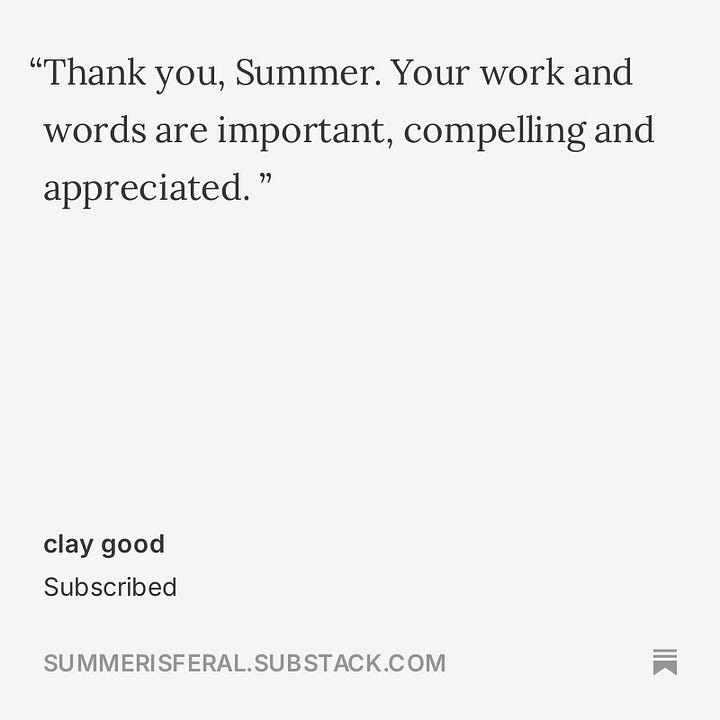
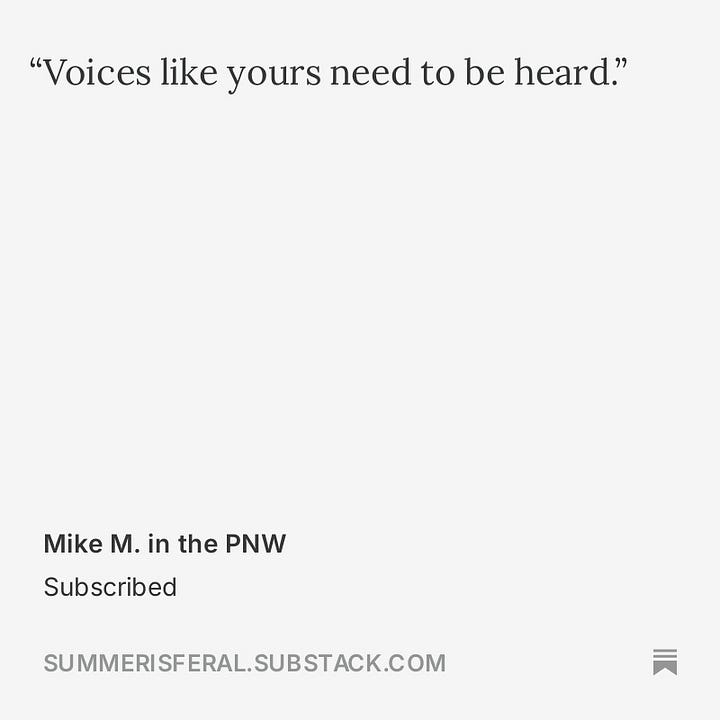

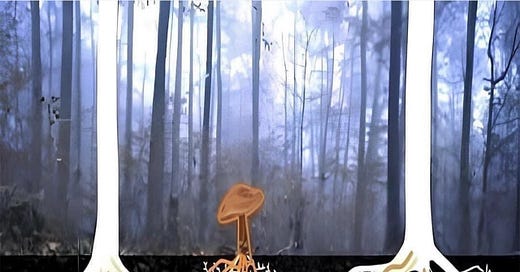



I too, sadly, am off to cook some mushrooms, for my omelet, alone, in a house suddenly too big with the passing of my spouse, on property I own, which is fenced and isolated. Set intentionally, many years past, from ‘the others’. Perhaps I need to rethink some silo choices?Thank you for the trigger.
"At the old school, all school supplies were shared. In Tlingit culture, possessions are not owned but “borrowed” until the person passes, when they are returned to the clan. Land is also not owned by individuals but by the clan as a collective."
This made my heart relax, i know this is what we all really need and yearn for - sharing and acknowledging the truth of how connected we are would make us all feel safe at the deepest level. This also has me thinking about how so much that we share is not material: our nervous systems, how beliefs seep into our hearts and minds, how fear is so contagious...
I am currently working from a coffee shop that recently opened in my small town. I had been yearning for space to just casually be with people while working on my own stuff. I thought it was the energy of the place, just being out of my house that drew me in (I have always loved working in a coffee shop or cafe) but I have started to realize that its the connection, the sharing of space that I love, the common resource - these make me feel safe, so I can just flow right into work.
Thank you!